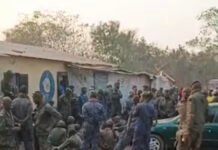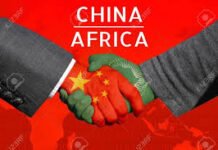By Foday Moriba Conteh
A recent report by the Institute for Governance Reform (IGR) has set off a wave of debate and skepticisms as the institution claims that a substantial 62% of Sierra Leoneans believe that the announced June 2023 election results genuinely reflect the people’s will.
While the statistics have been presented as a snapshot of public sentiment, they have left many questioning their accuracy, given the tumultuous context of the recently conducted elections.
The IGR Report reveals a deep divide among Sierra Leoneans in relation to their confidence in the election results. On one side, majority appears to accept the outcomes as legitimate. However, almost four in 10 respondents expressed doubts, with 14% advocating for a runoff election, and 13% asserting that Dr. Samura Kamara, a candidate, secured a majority exceeding 55% in the first round.
This polarization isn’t confined to the general public; it also aligns with political affiliations. Notably, according to the report, 89% of respondents linked to the ruling Sierra Leone People’s Party (SLPP) believe in the accuracy of the election results, while just 25% of those affiliated with the All-People’s Congress (APC), the principal opposition party, shares that sentiment. Those without affiliations to the major parties show a trust level close to the overall average, with approximately two-thirds endorsing the announced results.
However, context is essential to understanding these statistics. The recently concluded Presidential and General Elections were steeped in controversy. The results faced vehement opposition from the APC, who raised concerns about statistical inconsistencies, especially in the presidential results.
International observer groups, including the local National Elections Watch (NEW) and the EU Election Observation Mission, also pointed out issues related to transparency in the tabulation process and logistical challenges in certain areas.
Furthermore, several international observers, including the European Union Election Observation Mission (EU EOM) to Sierra Leone and the Carter Center, have both called on the Electoral Commission for Sierra Leone (ECSL) to publish the results of the June 24, 2023, Presidential Election.
In a statement released by the EU EOM, dated June 28, 2023, it stated that it has called on the Electoral Commission for Sierra Leone (ECSL) to promptly publish disaggregated results data at the polling station level, a move which the election observer body said is aimed at ensuring transparency and public scrutiny of the electoral process.
“The observers were unable to effectively verify the result forms for the presidential election and important information regarding corrections and cancellations of polling station results was not shared with party agents and citizen observers,” the EU EOM highlighted, adding how the absence of disaggregated results data at the polling station level has compromised the transparency of the results management process.
The U.S. State Department, on the other hand, continued to be concerned about irregularities in the election results announced by the Electoral Commission for Sierra Leone (ECSL). Independent parallel vote tabulations and analyses by accredited national and international observation missions raise questions about the integrity of the official results. The U.S. therefore called on the Government to institute an independent, outside investigation of the elections process and integrate observer recommendations to improve the electoral modalities for future elections.
Adding to the complexity, elected officials from the APC have refused to participate in governance.
Against this contentious backdrop, the IGR’s claim that 62% of citizens accept the election results as accurate has sparked a lively debate. Many citizens, who spoke to this medium, argued that the data did not fully encapsulate the broad spectrum of public sentiment, as a significant portion of the population remains deeply skeptical about the legitimacy of the election.
Given this intricate and contentious backdrop, IGR’s assertion that 62% of citizens believe the election results accurately reflect the people’s votes is being hotly contested by a significant segment of the population. The statistics presented by the IGR may not capture the full spectrum of public sentiment, as a substantial portion remains deeply skeptical about the credibility of the election outcomes. As Sierra Leoneans grapple with these divergent viewpoints, the debate over the legitimacy of the June 2023 election results continues to unfold.
More details in subsequent publications




